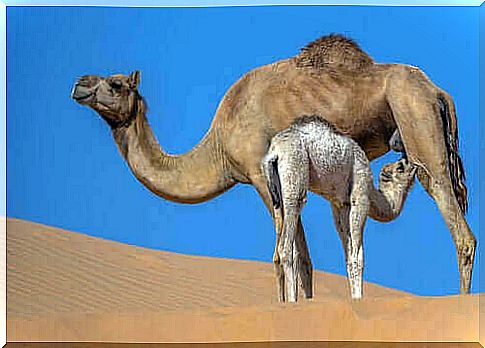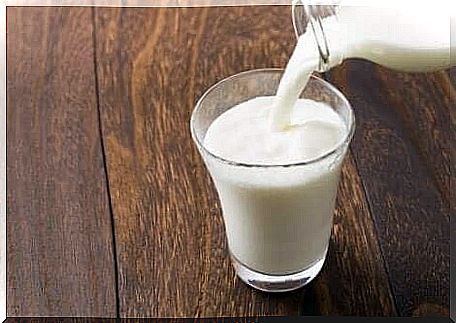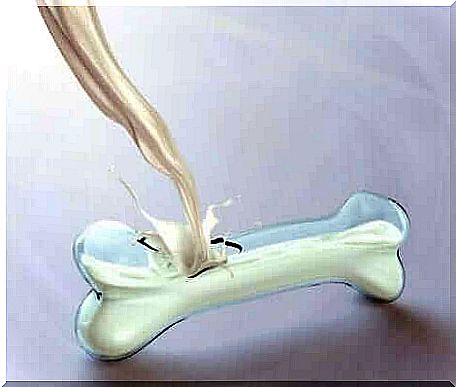The Properties And Benefits Of Camel Milk

Have you ever heard of camel milk? It is quite popular in some regions of the world. Sometimes it is even the only choice for dairy products in those places.
Milk is used all over the planet. Although traditionally the most common type has been cow’s milk, there is a wide variety of types. People drink it from:
- camels
- sheep
- buffalo
Although all milk provides valuable nutrients, its composition depends on the animal from which it comes. In addition, keep in mind that its consumption depends on the geographical area and availability.
A camel can produce 1 to 12 liters of milk per day, depending on the quality of her food and the amount of water she drinks. A distinguishing feature of this species is that it can maintain a constant production even when there is little food available.
Properties of camel milk
Just like the milk of any other animal, camel milk contains many nutrients that can bring many benefits to the human body. So what is the chemical composition of camel milk? What is the difference with cow’s milk? Read on to find out.
Vitamins and minerals
With the exception of sodium, these are basically the same as the minerals and vitamins found in cow’s milk, and in comparable amounts too. The mineral content varies in concentration up to 5% in situations of water restriction.
A glass (250 ml) of camel milk provides 150 calories. It also contains the same amount of calcium as seven sardines with bones, and the same amount of potassium as a banana. The vitamins are the same as those in cow’s milk, but in different proportions. In addition, it delivers less:
- riboflavin
- folic acid
- pantothenic acid
In addition, it provides up to five times more niacin and vitamin C.
According to the World Food and Agriculture Organization (FAO) , this milk is a vital source of vitamin C for people living in arid and semi-arid regions. This is good because these populations often do not have access to fruits and vegetables.

Proteins and lipids
The protein in camel milk is similar to the protein in cow’s milk. The concentration is about 3.5 ml per 100 ml. A glass of camel milk also contains as much protein as an egg.
As for fats, camel milk has a content of 1.7 ml per 100 ml, which consists of unsaturated fatty acids. There is less cholesterol in 250 ml of this milk than in 100 grams of fish, and less fat than in 250 grams of beef.
Carbohydrates
The lactose content of camel milk depends on the water intake of the animal. The content drops to 5%, making the milk taste less sweet when the supply is limited.
What are the health benefits of camel milk?
Researchers have found that camel milk can aid in the recovery of food allergies because it contributes to the improvement of the intestinal mucosa. Also, the health benefits are greater with the consumption of camel yogurt (chal or shubat).
Also, it does not cause lactose intolerance, despite the fact that it contains almost the same amount of this substance as cow’s milk. Studies show that people who are lactose intolerant can drink camel milk without any negative symptoms. However, there is no explanation for this yet.
Camel milk has also been linked to improvement in cases of infectious diseases such as tuberculosis. This is due to the camel immunoglobulins with a high antigenic affinity. It gives them higher immune protection.
Finally, the intake of camel milk contributes to the maintenance of an optimal level of calcium in the bones, an effect usually associated with the lactose content. This is a bone-strengthening option for women at high risk for osteoporosis.

What are the main properties and health benefits of camel milk?
The consumption of this type of milk is not popular all over the world, but its properties make it very suitable for human consumption. In addition, it is an excellent ally for the prevention and improvement of various health problems. It is certainly also a good ally for the prevention of osteoporosis, allergies and intolerances.
This milk is not easy to find, but try it if you ever get the chance. It’s always good to broaden your boundaries. Especially if the benefits for the human body are proven. We hope you enjoyed reading this article.








